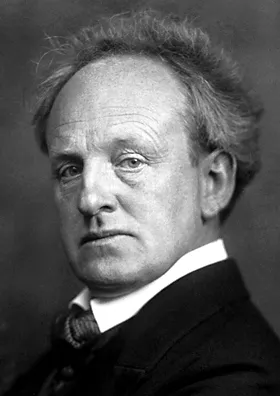
Name: Hans Leip
Born: 1893
Death: 1983
Nationality: German
Profession: Author, poet, and playwright
Notable Work: Wrote the lyrics of 'Lili Marleen'
1983 – Hans Leip, German author, poet, and playwright who wrote the lyrics of Lili Marleen (b. 1893)
On a chilly autumn day in 1983, the literary world mourned the loss of Hans Leip, a man whose words echoed through the hearts of many. Born in 1893 in the picturesque town of Altona, then part of Germany, Leip’s journey into literature was as tumultuous as it was profound. One might say that he was destined to be a voice for the marginalized a poet whose pen wielded both beauty and heartbreak.
Growing up in a culturally rich environment, Leip found solace and inspiration among books and art. However, his path to becoming an author was anything but straightforward. He initially embarked on an academic career in philosophy and art history at the University of Hamburg; yet it wasn't long before he realized that his true passion lay not within dusty tomes but on paper writing stories that would resonate with everyday people.
By the time World War I broke out, Leip's aspirations took on new dimensions. Drafted into service at just 21 years old, he faced harrowing experiences that would shape his worldview forever. Ironically, it was amid this chaos that he penned one of his most famous creations: “Lili Marleen.” Originally intended as a poem for soldiers stationed far from home, its haunting melody captivated many when set to music by composer Norbert Schultze during wartime broadcasts.
The song told a tale of longing a poignant love story set against the backdrop of war’s brutality. Perhaps what made “Lili Marleen” so universally appealing was its raw emotion; it encapsulated feelings that soldiers and civilians alike grappled with during dark times. As one fan remarked during an interview years later: "It wasn’t just another war song; it became our anthem for love lost amidst destruction." This sentiment resonated across borders and generations.
However, despite its popularity, success did not come without struggles for Leip. Following World War II's end in 1945 and facing political turmoil in Germany once again this time from occupying forces the poet sought refuge in various artistic communities throughout Europe. He found solace among fellow expatriates who shared similar sentiments about their displaced identities amidst post-war realities.
Through collaborations with theater companies across Germany and beyond Leip also dabbled extensively in playwriting his works often explored themes surrounding existentialism combined with historical reflection a blend only few could master! His plays like “Das Lied der Nacht” embodied emotional depth while examining societal issues relevant even today!
The Legacy Left Behind
As time marched forward into modernity Hans Leip remained somewhat overshadowed by contemporaries such as Bertolt Brecht or Erich Kästner who gained widespread acclaim across international circles but arguably no other writer captured human experience quite like him! His keen observations about life’s fragility intertwined seamlessly within lyrical verses providing insights reflective not only upon personal anecdotes but broader societal implications too!
An Artistic Reflection
- Lili Marleen: A timeless love story conveyed through poignant lyricism remaining relevant throughout generations
- Theatrical Works: Plays incorporating existential themes combined with historical contexts yielding depth rarely seen
- Cultural Impact: Despite being less recognized than peers still managed to influence future artists across genres






